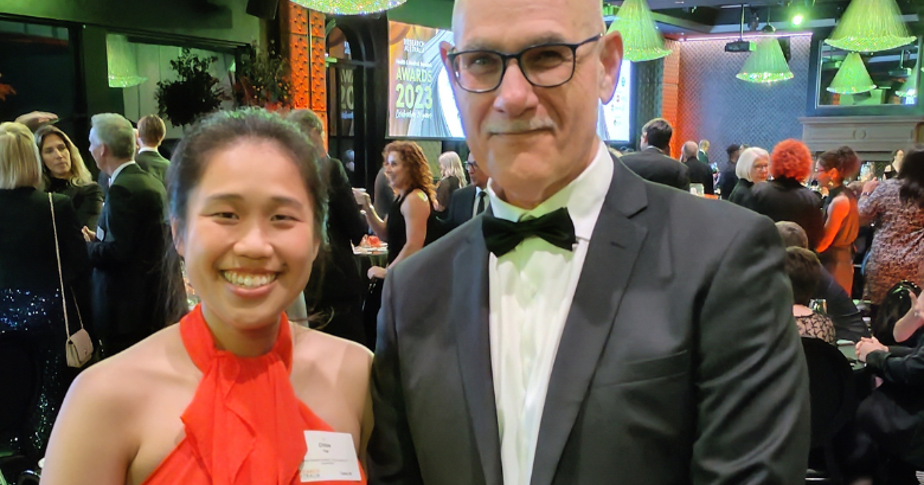
Mater Research’s world-class researchers were acknowledged last night at the prestigious Research Australia Health and Medical Research Awards Gala Dinner in Sydney, being recognised as finalists and taking home an award. The awards celebrate outstanding researchers who drive and support the opportunities that health and medical innovation bring to our lives.
Congratulations to Dr Chloe Yap, Industry Fellow, Cognitive Health Genomics Research Group, on being awarded highly commended for the Griffith University Discovery Award and to Professor Brian Gabrielli, Smiling for Smiddy Cell Cycle Research Group Leader, a finalist for the Advocacy Award.
Dr Yap graduated from The University of Queensland in 2022 with a Doctor of Medicine (MD) and a Doctor of Philosophy. She is now an early career clinician-researcher at Mater Research and practices as a junior doctor at The Prince Charles Hospital.
In collaboration with the Autism CRC, Dr Yap’s work is helping build bridges between scientists, clinicians, and people with autism. Her research work has questioned the popular view that the microbiome causes autism, identified fats that may contribute to sleep problems in autism, and indicated that peripheral biomarker research in autism is better directed towards co-occurring conditions rather than autism diagnosis itself.
Dr Yap said that she is passionate about working with the community to do biological autism research differently.
“It has been an honour to be awarded high commended for the Griffith University Discover Award. I’d like to thank my nominators Associate Professor Paul Dawson and Professor Karen Mortiz and my supervisors Associate Professor Jake Gatten and Professor Naomi Wray,” Dr Yap said.
Prof Gabrielli has achieved remarkable milestones in his research career, with over 120 scientific publications, 6,100 citations and a total of $10 million awarded to him through competitive grants.
Prof Gabrielli is passionate about advocating for the next generation of scientists and researchers. As co-founder of the SPARQ-Ed program (Students Performing Advanced Research - Queensland Education), he has used this passion to co-develop this unique biomedical education program that provides students and teachers from across Queensland with a practical introduction to biomedical research, run within a fully equipped Physical Containment (PC2) teaching laboratory and learning centre, located at the Translational Research Insitute.
Prof Gabrielli said students are the people we need to inspire to make sure that the legacy and the research momentum is carried into the future.
“We’ve got a lot of problems in the world, and it’s these smart kids who are going to be solving them,” Prof Gabrielli said.



